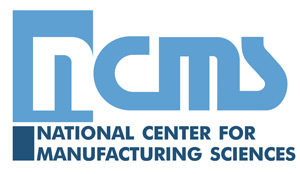Marine Corps: CTMA Expeditionary Fluid Analysis Capability Initiative Update
While operating in austere conditions, such as environments with an abundance of sand, dust, and salt, it is more critical than ever to keep engines clean and mission-ready. If engine lubricants become fouled, the negative ripple effect on the vehicle means time-consuming maintenance and equipment that isn’t available when needed.
Machine condition monitoring based on fluid analysis is an essential maintenance activity across the DOD. Effective fluid analysis procedures ensure the readiness of weapon systems, including ground vehicles, by reducing unexpected failures and unscheduled repair times.
It is critical to know if fluids within an engine, transmission, differential, hub, or hydraulic systems needed to be changed. However, due to an antiquated and cumbersome process, analyzing the engine fluid health wasn’t always possible. To ensure fleet readiness, fluid changes took place often with the result of excessive material waste and labor hours. What the U.S. Army needed was a way to check the health of vehicle fluids quickly, accurately, and wherever vehicle maintenance needed to occur.
After working with the Joint Oil Analysis Program (JOAP) the Army has considered several fluid analyzing options. The Army initiated a CTMA demonstration with Spectro Scientific, now part of AMETEK. This vehicle fluid concern wasn’t limited to the Army. During the course of the testing, the Marine Corps participated as an observer. They were impressed by what they witnessed and have recently awarded AMETEK a first contract of $8.7M for the Expeditionary Fluid Analysis System (EFAS).
In their Requirements Memorandum, EFAS will assist in the monitoring, testing, troubleshooting, and repair of Marine Corps ground equipment that utilizes lubricating and/or hydraulic fluids. The Marine Corps needed to decentralize testing and empower field units to assess oil quality on demand. This portable test equipment allows the force to maintain maximum operational availability and the health of combat systems.
The EFAS was tested on 90 vehicles within a battalion of Joint Light Tactical Vehicles and Medium Tactical Vehicle Replacement. The results of this evaluation were significant. Extrapolating the results throughout the Marine Corps, approximately $6M a year would be saved in manhours in unnecessary oil drains, oil cost savings not to mention the positive environmental impact.
“With the study results and the positive impact on readiness, the Marine Corps didn’t hesitate to pull the trigger,” says Jason Marshall, Manager of Global Government Business for AMETEK’s Fluid Analysis Group.
